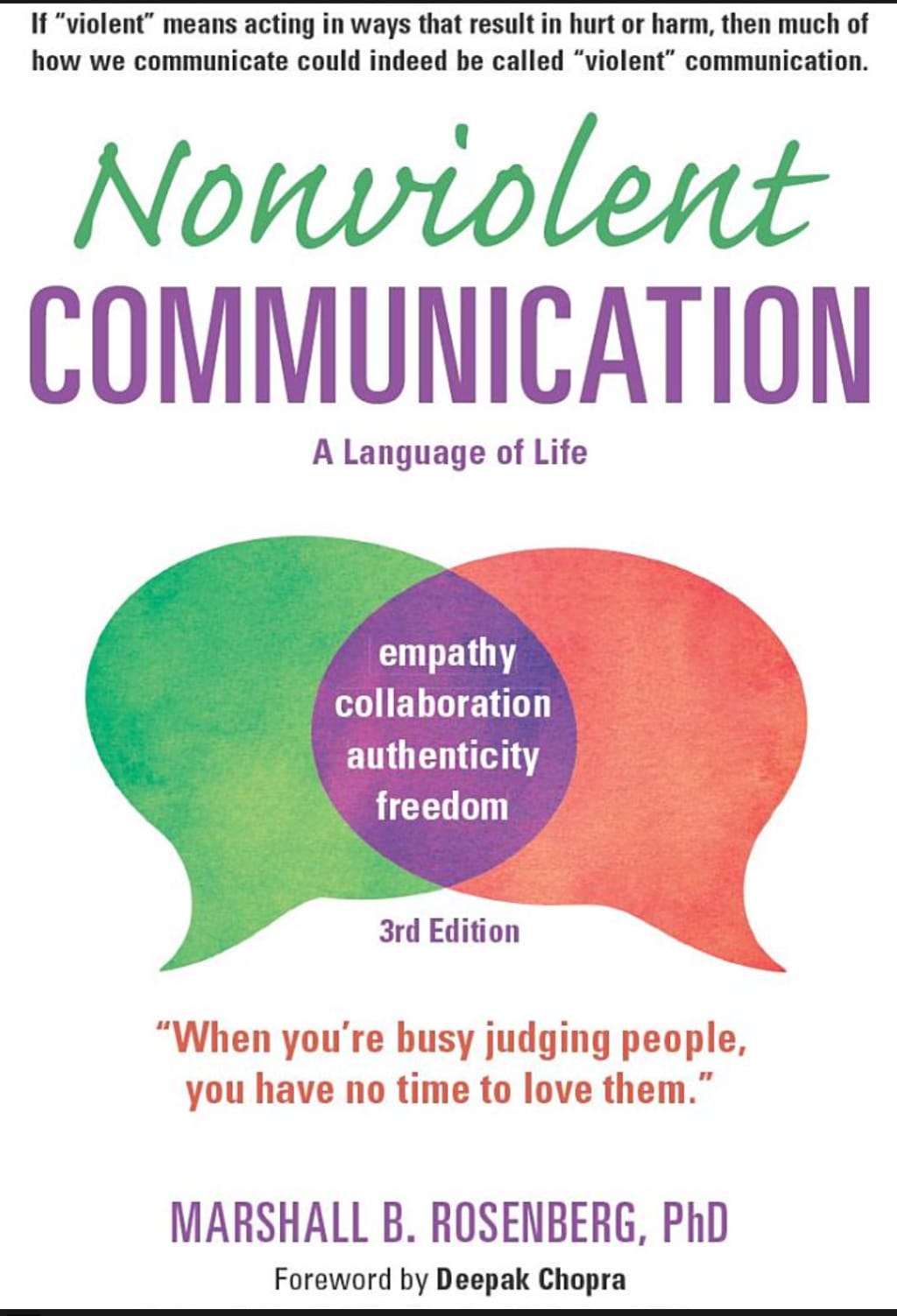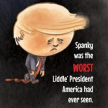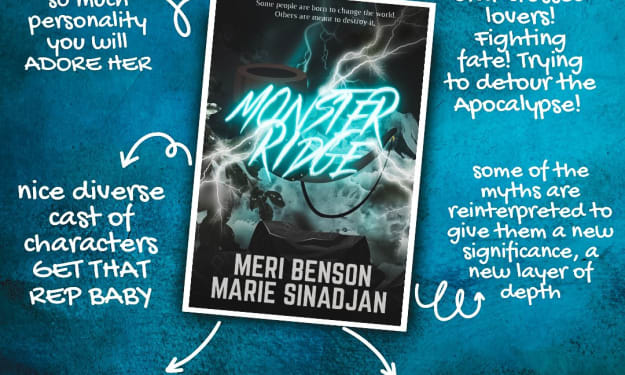Nonviolent COMMUNICATION--A Language of Life
"Words and the way we think matters. Find common ground with anyone, anywhere, at any time, both personally and professionally."

In a world that often feels like a stormy sea of misunderstandings, I found solace in the words of Marshall B. Rosenberg's book Nonviolent Communication: A Language of Life. It was a recommendation from a former friend that led me to this transformative journey through the pages of a book that would forever change my perspective on communication and connection.
From the very beginning, the words of Deepak Chopra's foreword struck a chord within me. "Higher consciousness is too lofty as the term for Ahimsa [or NonViolent Communication (NVC)]," he wrote, "Normal consciousness is more accurate in a world where the norm is so abnormal that it amounts to psychopathology." These words echoed the disarray that I often witnessed in the world, where conflict and violence were considered the norm. The book promised an alternative, a path to communicate and relate with one another from a place of empathy and compassion.
Rosenberg's exploration into the realm of communication seemed to unlock doors I never knew existed. Through the lens of Holocaust victim Etty Hillesum's diary, he revealed the profound capacity for compassion even in the face of the darkest times. Her ability to understand the pain of a young Gestapo officer showed me the power of seeing beyond behavior to the underlying needs and struggles that drive it.
As I delved deeper, I encountered the practicality of Rosenberg's Nonviolent Communication (NVC) process. His illustration of a mother addressing her son's messy room served as a guide to navigating conversations with empathy and respect. The simplicity of expressing feelings and needs resonated with me, providing a framework for creating connections that transcend judgment and blame.
'For example,' he wrote, 'a mother might express these three [components of NVC] to her teenage son by saying, "Felix, when I see two balls of soiled socks under the coffee table and another three next to the TV, I feel irritated because I am needing more order in the rooms that we share in common." She would follow immediately with the fourth component--a very specific request: "Would you be willing to put your socks in your room or in the washing machine?" This fourth component addresses what we are wanting from the other person that would enrich our lives or make life more wonderful for us.' (p. 6).
Rosenberg's insights into life-alienating communication illuminated the destructive impact of moralistic judgments. He painted a vivid picture of a world trapped in a web of rightness and wrongness, a world where the true essence of communication was overshadowed by labels and criticism. I found myself reflecting on my own interactions, realizing how often I had fallen into this trap without even realizing it.
'Such judgments are reflected in language: "The problem with you is that you're too selfish." "She's lazy." "They're prejudiced." "It's inappropriate." ["What an awkward man."] Blame, insults, put-downs, labels, criticism, comparisons, and diagnoses are all forms of judgment. The Sufi poet Rumi once wrote, "Out beyond ideas of wrongdoing and rightdoing, there is a field. I'll meet you there."' (p. 15).
Rosenberg's quotation of the words of George Bernanos echoed in my mind as I pondered the choices we make in our communication. The observation that docility, rather than cruelty, could lead to our undoing left me contemplative. Could it be that our willingness to accept harmful patterns of communication and submission to authority had greater consequences than we dared to imagine?
In the midst of this reflection, Rosenberg's words about the relationship between language and violence took root in my thoughts. The research from the University of Colorado underscored the connection between the words we use and the actions that follow. Violence was not only physical; it began in the way we labeled and judged one another. It was a stark reminder of the responsibility we held in shaping the world through our words.
'[O.J. Harvey] took random samples of pieces of literature from many countries around the world and tabulated the frequency of words that classify and judge people. His study shows a high correlation between frequent use of such words and frequency of [violent] incidents. It does not surprise me to hear that there is considerably less violence in cultures where people think in terms of human needs than in cultures where people label one another as "good" or "bad" and believe that the "bad" ones deserve to be punished. In 75 percent of the television programs shown during hours when American children are most likely to be watching, the hero either kills people or beats them up.' (pp. 17-18).
Page by page, the book carved a new path in my understanding of communication, empathy, and humanity. Rosenberg's insights became more than words; they became a call to action. As I embraced the principles of NVC, I held hope for a future where understanding and compassion prevailed over conflict and discord.
My journey with "Nonviolent Communication: A Language of Life" was not just a fleeting experience. It was a transformation that left me humbled, inspired, and empowered. Through its wisdom, I glimpsed a world where empathy bridged the gaps between us, and where the principles of nonviolent communication acted as guiding stars in the darkness of misunderstanding.
While I may stumble along the way, I know that the lessons from Rosenberg's book will remain a compass in my interactions. They will be my reminder to pause, take a breath, and strive for a language that nurtures understanding and healing. In a world often filled with noise, these words have become a beacon of hope, lighting a path towards a more compassionate and connected existence.
About the Creator
ANTICHRIST SUPERSTAR
https://charlesjohnson.substack.com/p/some-lingering-russo-ukrainian-questions
"the marginal people of the former Soviet states are being ground up in Ukraine...A front can be an especially great way of getting rid of troublesome peoples."






Comments (2)
sorry for the long comment lol Great job!
I love this! 💖 This is what my husband and I try to instill into our four children. It's a huge belief in our house that empathy goes a long way. If we are to ever judge our kids it would be about something good. (Judging isn't always a bad thing) We judge out loud to celebrate and congratulate. We like to use positive reinforcement, rather than negative reinforcements. The main reason for us is that, we were raised by a generation of people that believes fear is respect. Our generation and for many generations before us were taught that if you are to put fear in someone's heart, that it would prevent them from doing things that you don't agree with. This simply isn't true. What people don't realize is that this is true for only 1 out 10 kids. As for the rest, they would either carry that belief down to the following generations; be traumatized by it; and/or rebel against it. For me it was number and three. My husband it was the latter. The difference between us and our kids is that they will know nothing but unconditional love from us. Coincidently, they also know that it isn't up to them what others believe, nor is it their job to make others believe in the same things. However, learning how to respect others despite of their beliefs, shows others around you that it's ok to be kind. It's ok to look passed one another's love people, coexists alongside another without fear or anxiety. If everyone would just be a little more understanding of the next person; this world would be so much nicer. Thank you for sharing this wonderful piece of work!